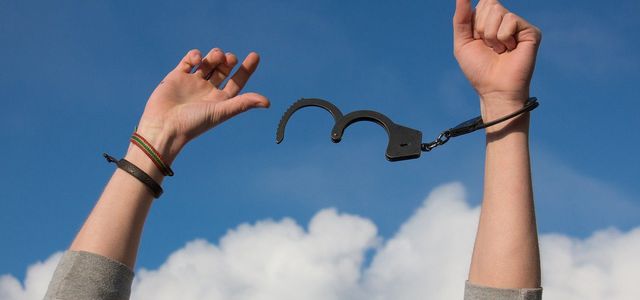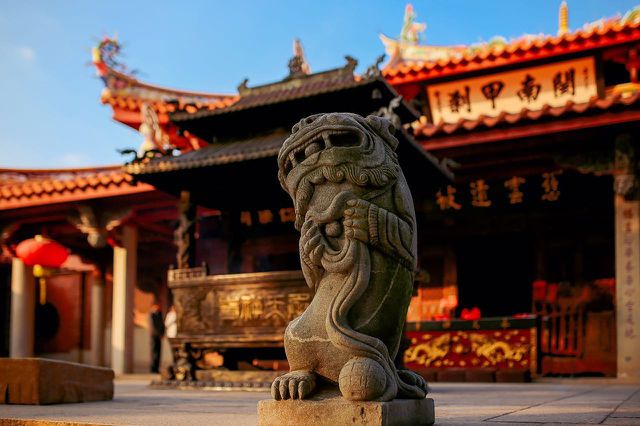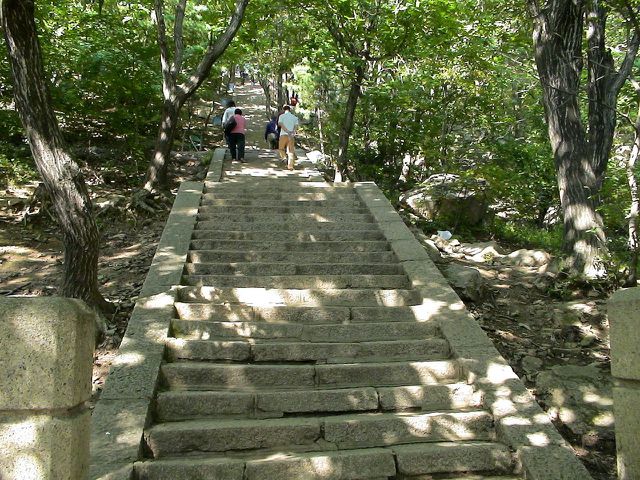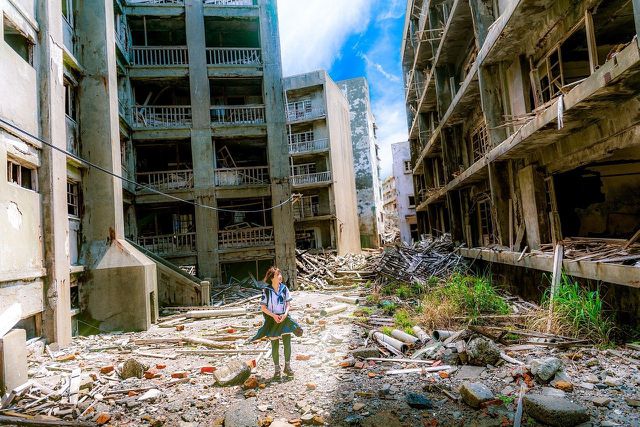
Wu-Wei is an old principle from Taoism that wants to free people from cramped value systems. We explain how Wu-Wei came about and how you can use it.
Wu-Wei: In a nutshell
In short, Wu-Wei is about that deliberate non-intervention or inaction in a situation. According to Yen-Hui Lee, who did his PhD in 2001 “The Serenity and Wu-Wei” published at the Albert Ludwigs University, Wu-Wei is like a kind meditation: You can let go of everything that holds you in your thoughts. So the mind calms down and acts like a mirror. This helps to calm down and let new forces arise.
Wu-Wei: That’s the story behind it

(Photo: CC0 / Pixabay / KimJong)
Wu-Wei first appears in ancient China. The philosopher Laotse (also known as Lao Zi) developed the Wu Wei principle in the 6th century BC. BC embossed. This principle subsequently became important for many rulers in China throughout history to the present day.
Yen-Hui Lee takes us further into Wu Wei thinking of Laotse, the founder of Taoism. Laotse lived in seclusion and distance. This distance enabled him to understand mechanisms in his country that were otherwise not recognizable. Laotse did not understand the problems he perceived as unique phenomena in human history. Rather, he saw in these problems forces that have changed over the course of human history to repeat.
Yu-Wei: Acting as a result of an intention



(Photo: CC0 / Pixabay / Alexas_Fotos)
This led Laotse to the thesis that political action is not a solution to problems such as suffering, war or power struggles. Instead you should look for the causes of the problems and try to solve these problems. For Laotse assumed that value systems, life itself and politics alienate people from their own nature. Laotse speaks of it Yu-Wei. This means that every action is done on purpose.
Wu-Wei: The opposite of Yu-Wei
The opposite of Yu-Wei is Wu-Wei. For Laotse, Wu-Wei was the healing recipe that can make people healthy within the value system. Wu-Wei offers a way to get rid of these influences
Wu-Wei can also for us today be helpful. Because we live in a fast-paced, conflicting world. Wu-Wei thinking helps us to calm down and find our way back to ourselves.
Wu-Wei: How it leads to the Tao



(Photo: CC0 / Pixabay / BM10777)
The highest goal at Wu-Wei is to Tao to get. In Taoism, Tao is understood in the original sense as the “moving path”. Tao can also be translated as the “good origin of man”.
The Tao is a living entity, but works in two ways according to Laotse in the world: in being and not being. Everything is moved and animated by being. By not being, i.e. Wu-Wei, everything comes back to the origin and calm.
To achieve the Tao, two movements in the Wu-Wei principle are important, which are interlinked:
- Wu-Wei wants to find a way out of cramped consciousness: Only through this liberation can man develop into his true self within the collective.
- Wu-Wei wants to unite with the Tao: The goal of Tao is not the completion of a state. The Tao is the way itself. The path is a process of transformation of the human being. Within this transformation you gain a new perspective. The goal is that the ego is made in such a way that it has a mirror-clear consciousness. So it exudes an indestructible calm.
Three ideas on how to apply the Wu Wei principle
Laotse gives various ideas to free yourself from the entanglements:
- Liberation from desire.
- The exemption from a fixed value system.
- The withdrawal from the entanglement of the world.



(Photo: CC0 / Pixabay / Free-Photos)
These ideas can also be today, 2600 years after Laotse. With the Wu Wei principle, you can not only free yourself from norms, but also learn to withdraw. Like Laotse, this allows you to distance yourself from things in order to analyze them at a distance for their cause. This trainable protection increases your mental health because you get away from your feelings and injuries.
1. Liberation from desire
Perhaps you also know “desire” from your life: You become jealous because you compare yourself or because you feel that you have been treated unfairly. Here is subliminal Potential for violence, that hurts.
So try to distance yourself from your desires. Look at them from a distance: why are you jealous? Why do you feel treated unfairly? Is that because you crave love? Or would you like more recognition? It is usually the same background that we encounter every day in our thoughts. The background is mostly related to our biography. Knowing the origins will make it easier for you to accept them, thereby reducing the potential for violence.
2. Exemption from a defined value system
A value system helps orientation. Nevertheless, a value system can narrow the view because it only works with criteria that determine what appears to be “right”. A value system can therefore be used to distinguish between beautiful and ugly, good and bad, etc.
Free yourself from the value system of your environment. Distance yourself and question it again and again. Behind the value systems of a society or a group are stories that are needed for understanding. Some of it may have been valid for a few decades ago for a good reason, but may now be re-examined due to other circumstances. Wu-Wei helps you to look at things more objectively, since norms and expectations can be broken.
3. Withdrawal from entanglement with the world
It works Not about a Self-actualization to live as it is modern in the West. Because in Confucian thinking, people can only develop a meaningful life within the framework of the world, society and family.
Do not make yourself dependent on the opinions of others, but try things lens to look at and ask about their cause. This is the only way to escape the violence and the norms of value. See yourself as part of a big whole, because not only does your environment influence you, but you can influence it with distant perspectives.
Wu-Wei in simple words



(Photo: CC0 / Pixabay / Engin_Akyurt)
Conclusion: The Wu-Wei principle is part of one of the best-known currents in philosophy. That is why it is difficult to understand without all the background information. Here is the Wu Wei principle again briefly and in simple words:
- Lean back on the next problem first.
- Wait a bit.
- Look at the problem from a distance. Failure to act will make your mind clearer and you can find non-violent solutions.
Read more on Techzle.com:
- 5 languages of love: this is how you show affection and appreciation
- Resolving conflicts: this is how you deal with conflicts properly
- Build trust: this is how you strengthen your relationship